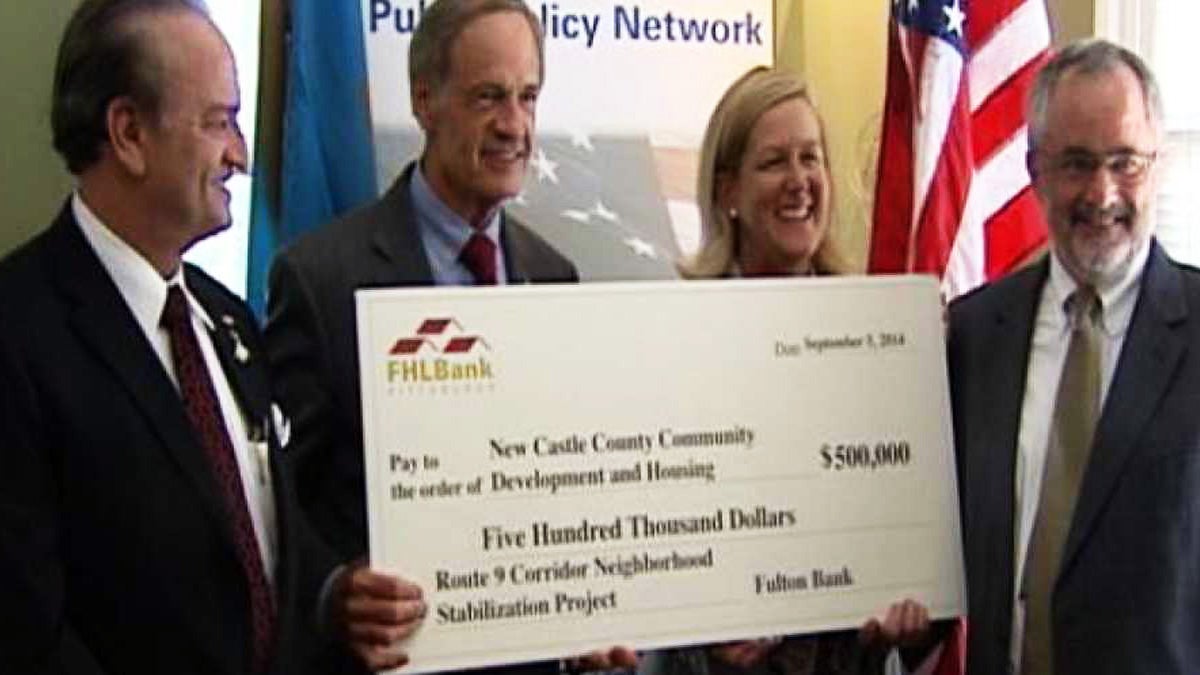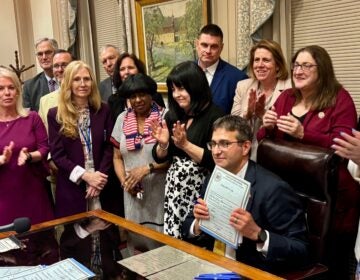Wilmington Leaders Alliance to focus on city’s success

(Charlie O'Neill/WHYY)
A group of business and non-profit leaders are joining in an effort to improve economic development, leadership, public safety and education in Wilmington.
On Monday, the newly formed Wilmington Leaders Alliance discussed its vision of making Wilmington “the most dynamic small city in America” during its launch event at the Chase Center in Wilmington.
“It is essential to support opportunities for entrepreneurs and innovators from both the private and public sectors to engage, convene and work together to enhance the intellectual and economic vitality of Wilmington,” said WLA’s Board President Paul McConnell, a partner with McConnell Johnson Real Estate.
The group of 30 leading businesses, civic organizations and foundations say they will work together to identify, promote and support initiatives that aid in the growth of leadership, economic development, education and public safety in Wilmington.
The WLA said it will work to raise awareness, disseminate information, support innovation, leverage resources and advocate for growth in those key areas to improve the business and social environment for companies, employees and Wilmington residents.
“They’re all dedicated to the proposition we have to uplift our city, support the unemployed, people who’ve got challenges in their lives, and they also have an aspirational view of the city, which I find to be very positive and help my effort to turn the city around,” said Mayor Mike Purzycki, D-Wilmington, who spoke at the launch event.
McConnell said the WLA came about because he was interested in starting an organization that provided a platform for a group of leaders to talk about the future. That idea led to about two years of research and strategic planning for the WLA.
“I didn’t think we were connecting, and I felt the business community had given up in a way,” McConnell said. “Our culture wasn’t connecting and the business climate, companies were leaving, so I said, ‘Let’s rally ourselves together to talk about what’s necessary for us to be part of the future. How can we create a better city? How can we create a better state, and allow business leaders to get their voice back to talk about the future?’”
Economic development was the main focus of Monday’s event—as addressing the city’s issue of joblessness will be a key component of the WLA.
Following the launch the group led a workforce development forum featuring workforce companies Generation (a McKinsey Social Initiative), Tech Impact, Year Up and Zip Code Wilmington. The organizations discussed how partnerships with local employers can develop Wilmington’s workforce.
The WLA said its goal is not to create another workforce development program, but to identify, encourage and support existing programs and help them improve. The group said it will work to provide connections to employment, and ensure employees are aware of the programs available.
Thère du Pont, board vice president of WLA and president of Longwood Foundation, said one of the group’s roles is to help workforce development programs get exposure, because many employees don’t even know they exist.
“There are individual programs that are effective in workforce development. They’re nowhere at the scale they could or should be,” he said.
“You heard the Mayor’s remarks about the employment challenges the city faces. We have to fill that void. In the process of filling that void, I believe we can attract new employers to town who will take advantage of the employees these workforce development programs can generate.”
Purzycki said the WLA’s focus on workforce development also will improve other issues facing the city, such as crime and poverty.
“I think one of the big issues is joblessness, which leads to other dysfunctions, which leads to crime, and so if people have strategies for reducing joblessness, that’s going to help us in the long run,” he said. “If we can get people working and redefine normal in our poorest neighborhoods to include getting up every day and going to work, that’s a very important part of restoring stability and strength in our neighborhoods.”
WHYY is your source for fact-based, in-depth journalism and information. As a nonprofit organization, we rely on financial support from readers like you. Please give today.





